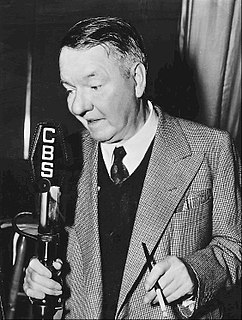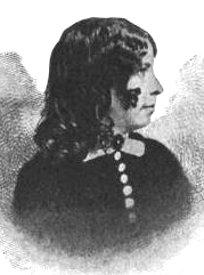A Quote by Ralph Waldo Emerson
The perception of the comic is a tie of sympathy with other men, a pledge of sanity, and a protection from those perverse tendencies and gloomy insanities in which fine intellects sometimes lose themselves. A rogue alive to the ludicrous is still convertible. If that sense is lost, his fellow-men can do little for him.
Related Quotes
Therefore if mine enemy hunger, let me feed him; if he thirst, let me give him drink. Now in order to do this, (1) We must see good in that, in which other men can see none. (2) We must pass by those injuries that other men would revenge. (3) We must show we have grace, and that we are made to bear what other men are not acquainted with. (4) Many of our graces are kept alive, by those very things that are the death of other men's souls.... The devil, (they say) is good when he is pleased; but Christ and His saints, when displeased.
Fancy what a game of chess would be if all the chessmen had passions and intellects, more or less small and cunning; if you were not only uncertain about your adversary's men, but a little uncertain also about your own. You would be especially likely to be beaten, if you depended arrogantly on your mathematical imagination, and regarded your passionate pieces with contempt. Yet this imaginary chess is easy compared with a game a man has to play against his fellow-men with other fellow-men for instruments.
It is self-evident that no number of men, by conspiring, and calling themselves a government, can acquire any rights whatever over other men, or other men's property, which they had not before, as individuals. And whenever any number of men, calling themselves a government, do anything to another man, or to his property, which they had no right to do as individuals, they thereby declare themselves trespassers, robbers, or murderers, according to the nature of their acts.
The wonder of an artist's performance grows with the range of his penetration, with the instinctive sympathy that makes him, in his mortal isolation, considerate of other men's fate and a great diviner of their secret, so that his work speaks to them kindly, with a deeper assurance than they could have spoken with to themselves.
So near are the boundaries of panegyric and invective, that a worn-out sinner is sometimes found to make the best declaimer against sin. The same high-seasoned descriptions which in his unregenerate state served to inflame his appetites, in his new province of a moralist will serve him (a little turned) to expose the enormity of those appetites in other men.
Every isolated passion, is, in isolation, insane; sanity may be defined as synthesis of insanities. Every dominant passion generates a dominant fear, the fear of its non-fulfillment. Every dominant fear generates a nightmare, sometimes in form of explicit and conscious fanaticism, sometimes in paralyzing timidity, sometimes in an unconscious or subconscious terror which finds expression only in dreams. The man who wishes to preserve sanity in a dangerous world should summon in his own mind a parliament of fears, in which each in turn is voted absurd by all the others.
Man with all his noble qualities, with sympathy which feels for the most debased, with benevolence which extends not only to other men but to the humblest living creature, with his god-like intellect which has penetrated into the movements and constitution of the solar system- with all these exalted powers- Man still bears in his bodily frame the indelible stamp of his lowly origin.
In our age the common religious perception of men is the consciousness of the brotherhood of man - we know that the well-being of man lies in the union with his fellow men. True science should indicate the various methods of applying this consciousness to life. Art should transform this perception into feeling.
The ideal audience the poet imagines consists of the beautiful who go to bed with him, the powerful who invite him to dinner and tell him secrets of state, and his fellow-poets. The actual audience he gets consists of myopic schoolteachers, pimply young men who eat in cafeterias, and his fellow-poets. This means, in fact, he writes for his fellow-poets.









































